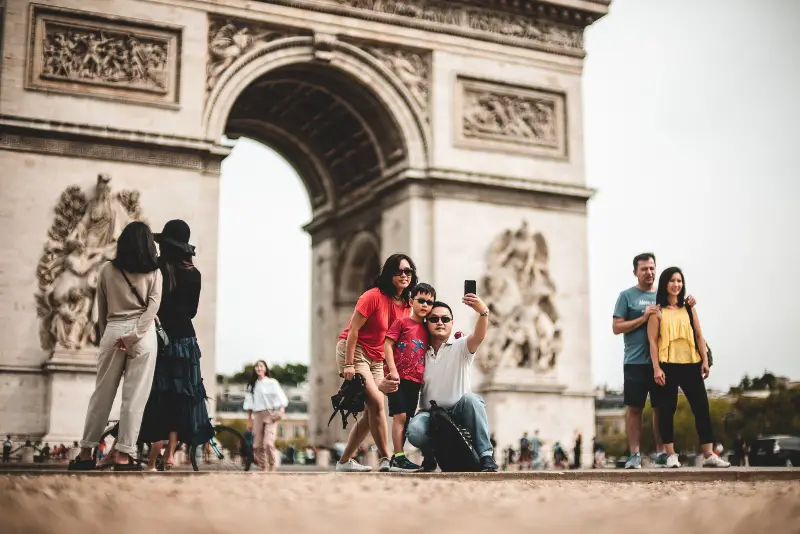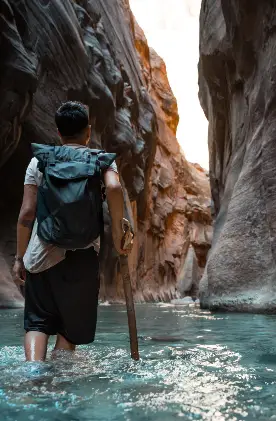Many parents do not understand how activities like travel can affect kids’ education, especially math. However, traveling to new cultures is a fun experience that can make learning easy and exciting. When kids immerse themselves in different cultures, they learn about the world and see things from different angles, especially when studying math for kids. The experience helps them gain a broader perspective and develop essential skills. That’s why travel is so important for kids.
Here are some ways exploring new cultures through travel can enhance education:
Traveling Fosters Cultural Awareness
Experiencing diverse cultures firsthand helps children become more aware and respectful of different customs, traditions and ways of life. This exposure fosters empathy, tolerance and a global mindset. It prepares students to navigate a world where connections between people from various backgrounds are increasingly important. Children develop the skills to communicate and collaborate with people worldwide by understanding and appreciating cultural diversity. Besides, traveling broadens their perspectives and equips them to thrive in an interconnected global society.
Traveling Improves Language Skills
Traveling to foreign countries helps kids learn languages in a practical and immersive way. They can communicate with locals, handle daily tasks and converse in different languages. The experience improves their language skills, making kids more adaptable and effective in cross-cultural communication. It’s a valuable opportunity to develop practical language proficiency and gain a deeper understanding of different cultures. If you are someone making money from home with clients across different continents, you will understand how important this skill is.
Traveling Expands Knowledge of Historical Sites
When kids visit historical sites and landmarks, they connect to the past. Walking through ancient ruins, exploring museums, and witnessing important events firsthand helps them understand history and geography more profoundly. It makes the things they read in textbooks come alive and allows them to appreciate the diverse cultures and civilizations that came before them. It’s like stepping back in time and gaining greater empathy for the people who lived in different eras. Plus, traveling expands their knowledge of the world’s fascinating history and geography.

Traveling Improves Critical Thinking & Problem-Solving Abilities
Traveling puts us in unfamiliar situations and presents challenges that we must navigate. Adapting to new environments, solving problems on the spot, and understanding cultural differences require critical thinking and problem-solving skills. As students encounter these situations, they learn to think creatively, adapt to change and find innovative solutions. These experiences enhance their ability to tackle challenges in their academic pursuits and real-life situations. It fosters a mindset of resilience and resourcefulness that prepares them for various situations.
Traveling Improves the Ability to Communicate Across Cultures
Engaging with people from different cultures enhances intercultural communication skills of your kids. They learn to navigate language barriers, interpret non-verbal cues and communicate with individuals from diverse backgrounds. These skills are crucial in our globalized society, enabling us to collaborate, understand and empathize with others. Developing solid intercultural communication skills fosters meaningful connections and promotes a harmonious world.
Traveling Teaches Kids More About Themselves
Traveling to new cultures sparks self-reflection and personal growth. It pushes kids outside their comfort zones, introduces them to new experiences and presents unfamiliar challenges. This journey of exploration fosters resilience, self-confidence and independence. As students navigate these experiences, they develop self-awareness, discover their strengths and gain a deeper understanding of their identities. It’s a transformative process that shapes their growth and helps them embrace their unique qualities. Kids who often struggle with self-expression will benefit significantly from traveling across cultures often. The more they meet people and learn about different modes of expression, the more they learn how to express themselves.

Traveling Teaches the Idea of Global Citizenry
Traveling broadens students’ perspectives on global issues and inspires them to become active global citizens. Experiencing firsthand the challenges different communities face, such as poverty, environmental concerns, or social inequality, ignites a sense of responsibility and a desire to contribute to positive change. This firsthand exposure prompts students to engage more in global issues, developing a passion for social justice and sustainability. They understand the world’s interconnectedness and feel compelled to make a difference, fostering a sense of empathy and a commitment to creating a more equitable and sustainable future.

Traveling Provides a Real-World Application of the Knowledge Gained in School
Traveling bridges the gap between classroom learning and real-world applications, giving students a tangible connection to their academic studies. They witness how concepts from different disciplines, like history, science, and art, come to life in various contexts. Through these experiences, they see the practical relevance of their studies, making connections and deepening their understanding of the subject matter. Whether exploring ancient ruins, conducting scientific experiments in unique environments, or engaging with local artists, students gain a comprehensive perspective beyond theoretical knowledge. Traveling adds a layer of richness to their education online, allowing them to see the practical implications of what they’ve learned and fostering a greater appreciation for the world around them.
Conclusion
Traveling as part of education has a powerful impact on learning and personal growth. It promotes hands-on learning, cultural understanding and a global perspective. Students gain real-life experience, essential life skills and empathy. It broadens their horizons and prepares them for a connected world. By embracing the transformative power of travel, we provide students with an education beyond the classroom, making them lifelong learners and responsible global citizens.























